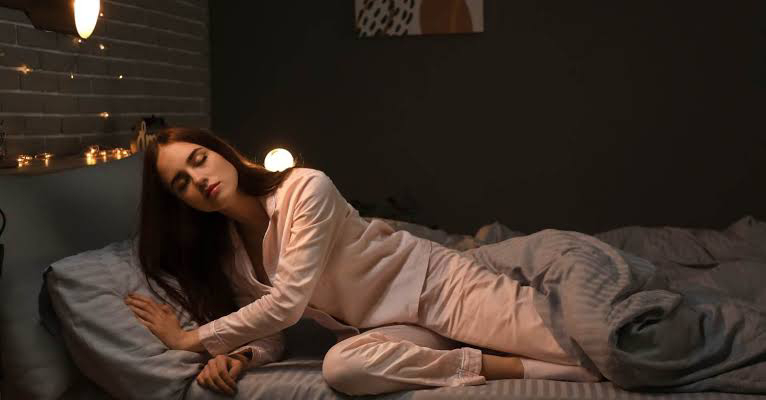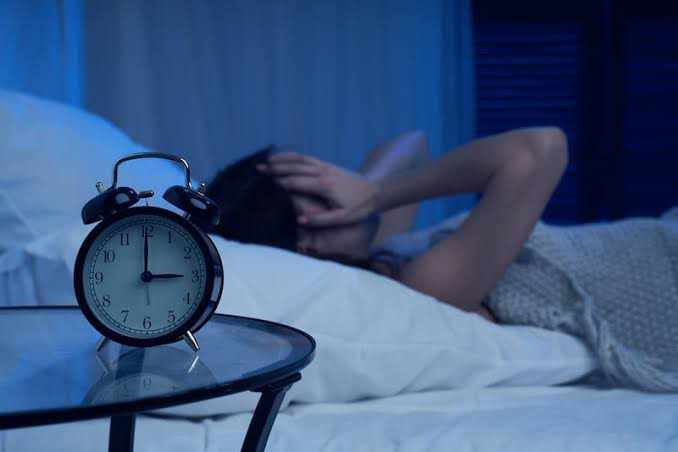Sleep Disorders
Sleep disorders are conditions that affect the ability to sleep well regularly. Common types include insomnia, sleep apnea, restless legs syndrome, and narcolepsy. These disorders can result in daytime sleepiness, poor performance, mood disturbances, and overall reduced quality of life.
Types of Sleep Disorders
1. Sleep Apnea: Sleep apnea is a condition where a person's breathing stops and starts repeatedly during sleep. There are two main types:
- Obstructive sleep apnea: This happens when the throat muscles relax too much and block the airway.
- Central sleep apnea: This occurs when the brain doesn't send the right signals to the muscles that control breathing.
Common symptoms include loud snoring, choking or gasping during sleep, and feeling very tired during the day. Treatments can involve making lifestyle changes, such as losing weight and avoiding alcohol.
2. Insomnia: Insomnia is the most common sleep problem. It means having trouble falling asleep, staying asleep, or getting enough sleep, even when we have enough time for a full night's rest. People with insomnia may feel tired, low on energy, have trouble focusing, and be irritable during the day. They often say their minds are too active to sleep. The main risk factors for insomnia are being older and being female.
Insomnia can be treated with different therapies, either on their own or combined. These include relaxation exercises, cognitive therapy, and good sleep habits.
3. Narcolepsy and hypersomnia: Narcolepsy and idiopathic hypersomnia are conditions that cause people to feel very sleepy during the day. This sleepiness isn't due to problems like sleep disorders, breathing issues during sleep, or lack of sleep, and it isn't caused by other medical conditions that disrupt sleep. The symptoms include:
- Feeling extremely sleepy during the day and needing more sleep than usual
- Sudden loss of muscle control (cataplexy)
- Temporary inability to move or speak while falling asleep or waking up (sleep paralysis)
- Vivid dream-like experiences while awake (hallucinations)
- Doing things without being fully aware, like sleepwalking (autonomic behavior)
- Acting out dreams due to excessive movement during REM sleep (REM behavior disorder)
These conditions can affect people of all ages but often start during adolescence. While behavioral measures like taking naps, joining support groups, and making adjustments at work can help, they are usually not enough on their own.
4. Parasomnias: Parasomnias are unpleasant or unwanted behaviors or experiences that happen when falling asleep, during sleep, or waking up. They usually occur when the brain is transitioning between different stages of sleep. There are different types of parasomnias:
- Disorders of Arousal, NREM: These occur during the first 60 to 90 minutes of sleep. They don't cause full awakenings but lead to partial arousals from deep non-REM sleep.
- Confusional Arousals: People experiencing this wake up confused and behave oddly. They might act resistive or even violent, and this can last from a few minutes to several hours.
- Sleepwalking: This involves getting up and walking around in an altered state of consciousness, with impaired judgment.
- Sleep Terrors: People having sleep terrors are difficult to wake up and, when awoken, are often confused and disoriented.
- Disorders Associated with REM Sleep: REM sleep behavior disorder involves complex behaviors during REM sleep, such as moving around or acting out dreams, which can sometimes be harmful. Normally, muscles are temporarily paralyzed during REM sleep.
- Nightmare Disorder: This involves having recurrent, disturbing dreams that seem very real and can wake the person up. After waking up, it is often hard for them to fall back asleep.
5. Sleep and neurological disorders: Sleep problems tend to get worse as certain diseases progress. Here are some examples:
- Alzheimer’s Disease: This is a brain disorder that leads to memory loss and a decline in thinking skills as people age. Treating sleep issues in Alzheimer’s patients involves addressing the symptoms and managing the disease.
- Parkinson’s Disease: People with Parkinson’s, a neurological disorder mostly affecting older adults, often struggle with sleep and have poor quality of life as a result. They may also feel very sleepy during the day.
- Dementia: Those with dementia, which causes problems with thinking, memory, and reasoning, often have trouble sleeping.
- Epilepsy: Epilepsy includes various disorders that cause unusual electrical activity in the brain, leading to seizures, which can affect consciousness and behavior.
- Stroke: A stroke happens when blood flow to the brain is interrupted, causing sudden loss of consciousness, sensation, and movement. This can also lead to sleep disturbances.
6. Sleep and Movement disorders: It includes:
Restless Legs Syndrome (RLS): This is a condition where you feel a strong urge to move your legs. It often comes with uncomfortable sensations, making it hard to stay still. People with RLS often wake up a lot at night because of this discomfort.
Periodic Limb Movement Disorder (PLMD): This disorder causes your arms or legs to move while you're sleeping, which can wake you up. These movements happen in episodes throughout the night and are especially common in older adults.
7. Sleep and Medical disorders: Many different medical conditions, from the common cold to cancer, can disrupt a person's sleep-wake cycle. These sleep issues often stem from the pain or infection linked to the primary illness. Here's how:
- Pain: Pain, whether acute or chronic, is an unpleasant sensory and emotional experience. It often leads to fragmented sleep and changes in sleep patterns.
- Infectious Diseases: Infections caused by bacteria, viruses, and parasites can alter sleep patterns. The type of bacterial infection can affect different stages of sleep (REM and NREM). Viral infections also impact the sleep-wake cycle.
- Cancer: Many cancer patients experience pain or depression, which makes it hard to sleep. Sometimes, treating the cancer can help improve sleep.
- Sleeping Sickness: This condition is associated with disrupted sleep patterns. It also affects the circadian rhythms of hormones like cortisol, prolactin, and growth hormone.
8. Circadian Rhythm and Sleep disorders: Circadian rhythm sleep disorders happen when our body's internal clock is out of sync with the natural day-night cycle. This can lead to trouble sleeping at the right times, feeling excessively sleepy, or both, which can affect our daily life.
There are two main types:
- Delayed Sleep Phase Syndrome: People with this syndrome tend to fall asleep and wake up much later than most people, making it hard to keep regular schedules. Treatment involves adjusting to a more typical sleep schedule and practicing good sleep habits.
- Advanced Sleep Phase Syndrome: This is when our body wants to go to bed and wake up much earlier than usual. Some studies suggest that bright light therapy in the evening can help reset our body's clock.









Comments
Post a Comment